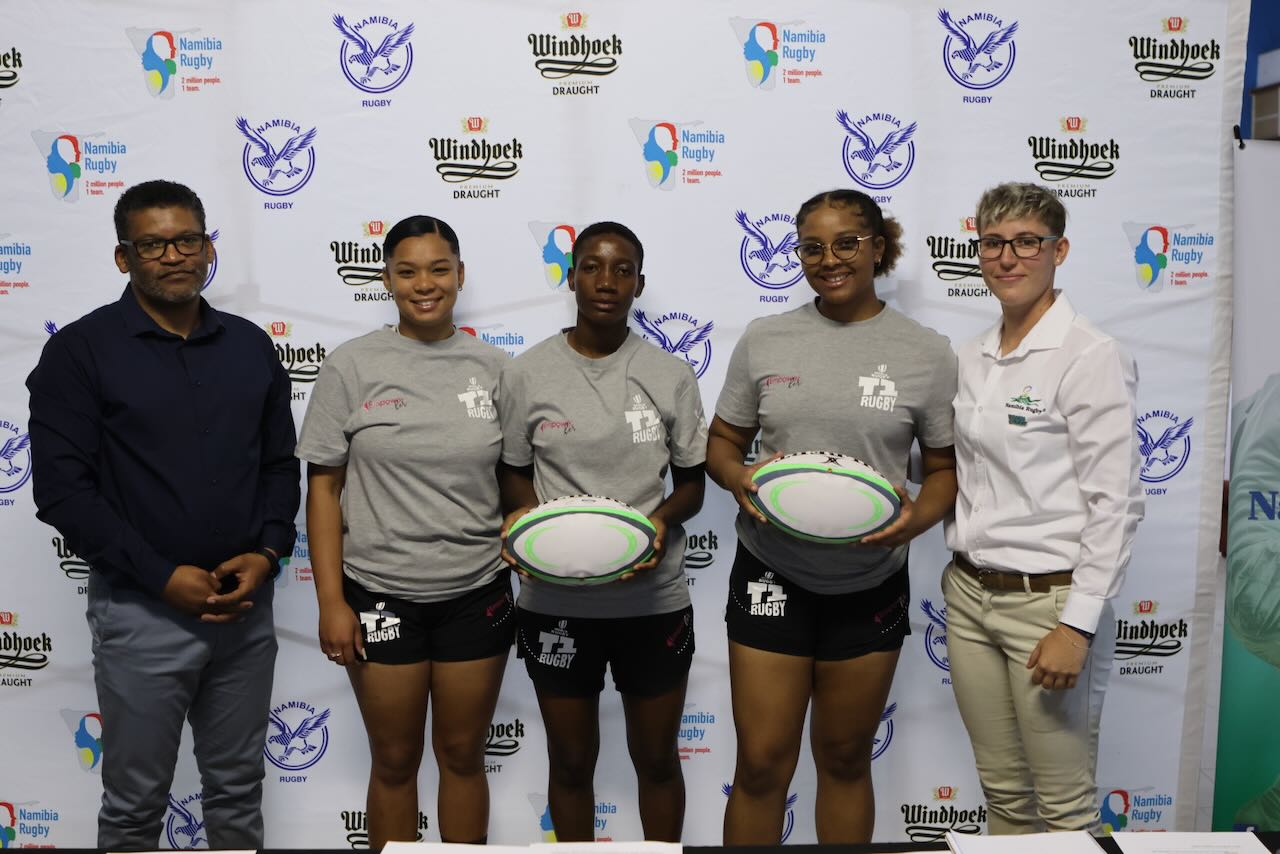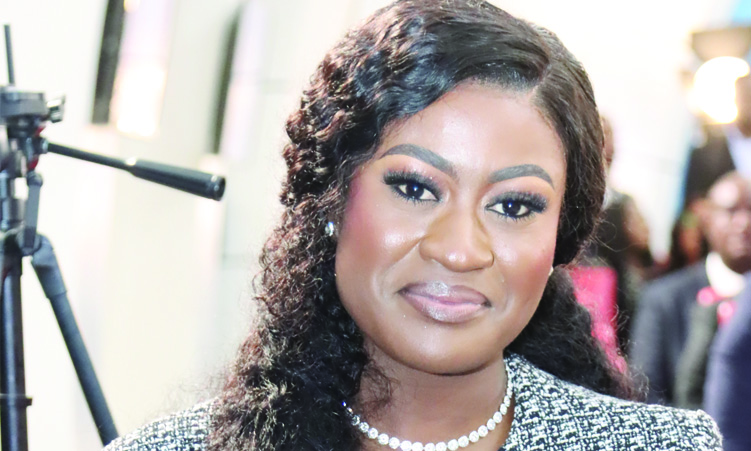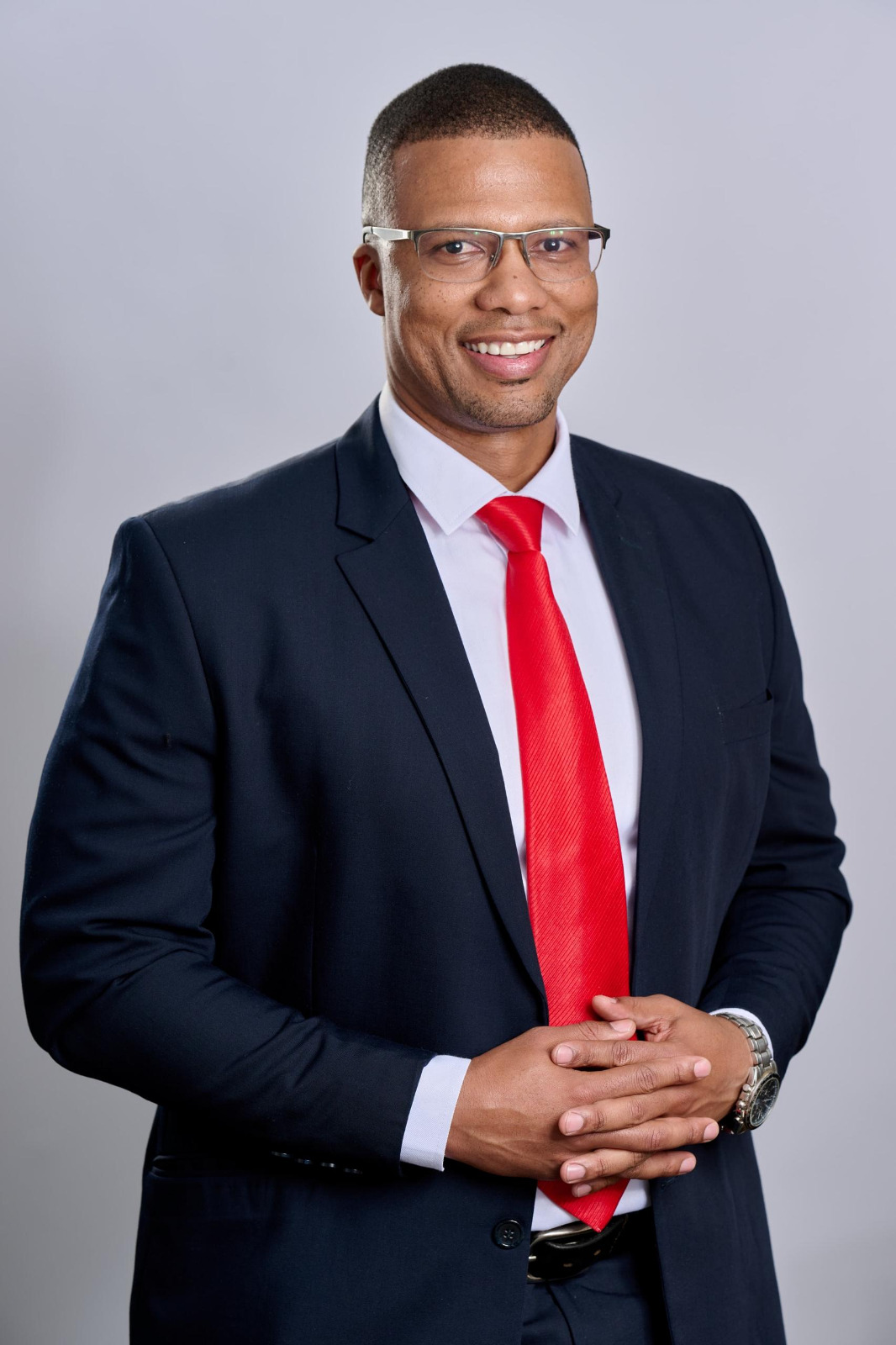The Namibia Rugby Union yesterday launched T1 Rugby in Namibia with the aim of creating more opportunities for girls and women to engage in rugby from grassroots to elite levels.
The initiative forms part of the Rising Rugby Play campaign and raising awareness for the 2025 Women’s Rugby World Cup in England.
At a press conference, the CEO of the Namibia Rugby Union, John Heynes said that through the T1 Rugby initiative they are committed to introducing rugby at schools and communities where the sport has previously been under represented, and developing a clear pathway for women’s rugby from schools level to national and international participation.
“The T1 Rugby programme has been carefully designed to be more inclusive, fast-paced and accessible with a format that caters to new participants by lowering the barriers to entry and creating a positive first experience with the game. It is more than just a sport – it is a movement to break down gender stereotypes, unlock potential and empower women in Namibia to reach their full potential,” he said.
“We launched the programme at four schools in Katutura and Khomasdal four weeks ago, under the guidance of five women’s rugby players and I’d say about 800 girls are now involved in the programme,” he added.
CJ Kotze, the NRU’s representative for women’s rugby said they are planning to expand the programme further.
“The NRU plans to expand the T1 Rugby format to more schools and communities as we transition into the next phase of the programme. Our goal is to build a sustainable pathway, where girls who start playing at school level can progress into development programmes, club competitions, and eventually represent Namibia on the world stage,” she said.
According to Heynes T1 Rugby is a third format of World Rugby, after 15-a-side and Sevens rugby, that encompasses normal characteristics of rugby like the scrum, the lineouts and rucks, but without full contact.
“There is no contact like a physical tackle, but there is a component of how to stop the ball carrier, so there is a touch component where the carrier must stop and do a certain sequence to offload the ball to a team mate. We also have rucks, uncontested scrums and lineouts, passing the ball, and forming defensive lines, so there’s a lot of rugby components that form part of T1 rugby,” he said.
Kotze said the aim was to grow the game and to empower female players and coaches in Namibia.
“The only way we are going to get women’s rugby to grow in this country is to make sure that the players plough back into the sport, and to make sure that we have enough coaches to be able to coach more girls, because that is the problem that we are currently facing at school level,” she said.
“There are not enough coaches, so this is not just a platform and a pathway for players to develop to premier league sides one day, but also for coaches to develop from grassroots level, and developing to hopefully one day coach some of our top clubs and even perhaps the national side. That is the ultimate goal, to make sure that we create a pathway to empower the ladies,” she added.
According to Heynes the programme will initially be funded by World Rugby but the NRU hopes to expand it further.
“Christel and I attended a rugby workshop in Rwanda in August where an opportunity to apply for this programme was made available by World Rugby and 126 countries applied, so we are very fortunate seeing that only seven African countries were successful with Namibia being one of them,” he said.
“The programme will run over the next 12 months and will be funded by World Rugby, but we will approach investors or sponsors in Namibia to expand it further. T1 Rugby is going to be huge in Namibia and the eventual aim is to transform this into a corporate league as well in 2025,” he added.
Stay informed with The Namibian – your source for credible journalism. Get in-depth reporting and opinions for
only N$85 a month. Invest in journalism, invest in democracy –
Subscribe Now!










